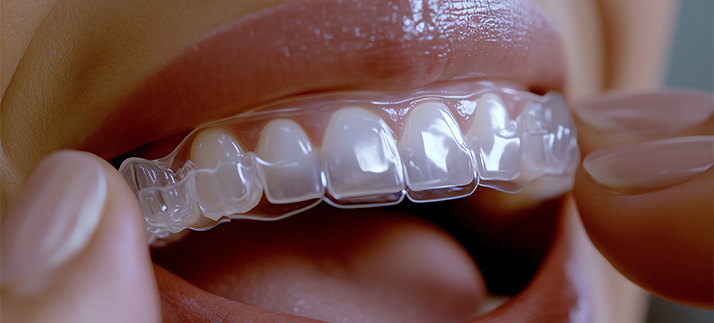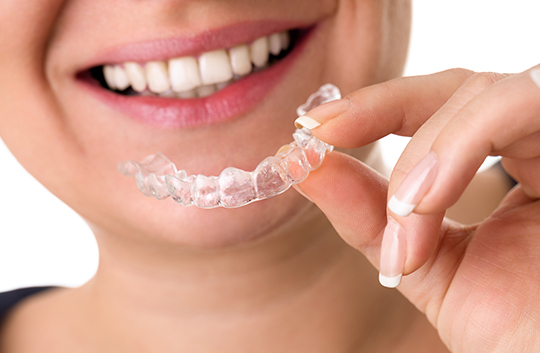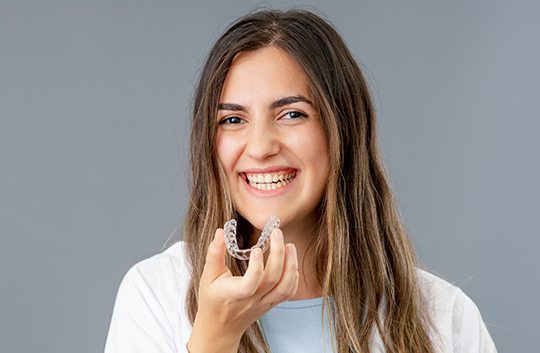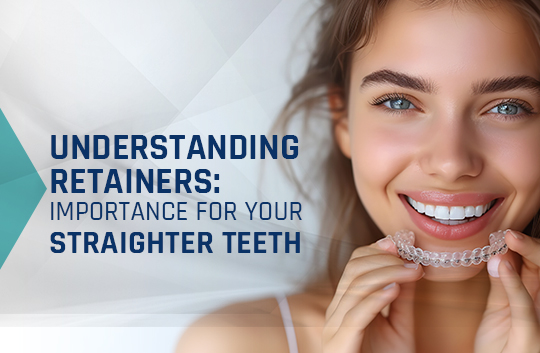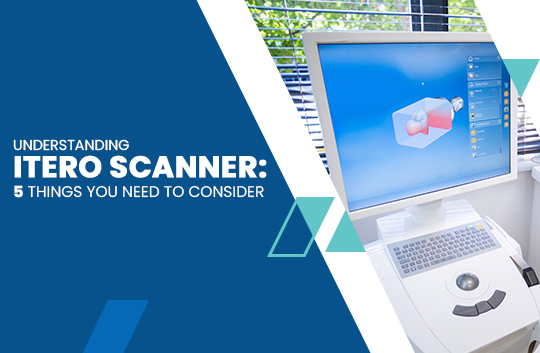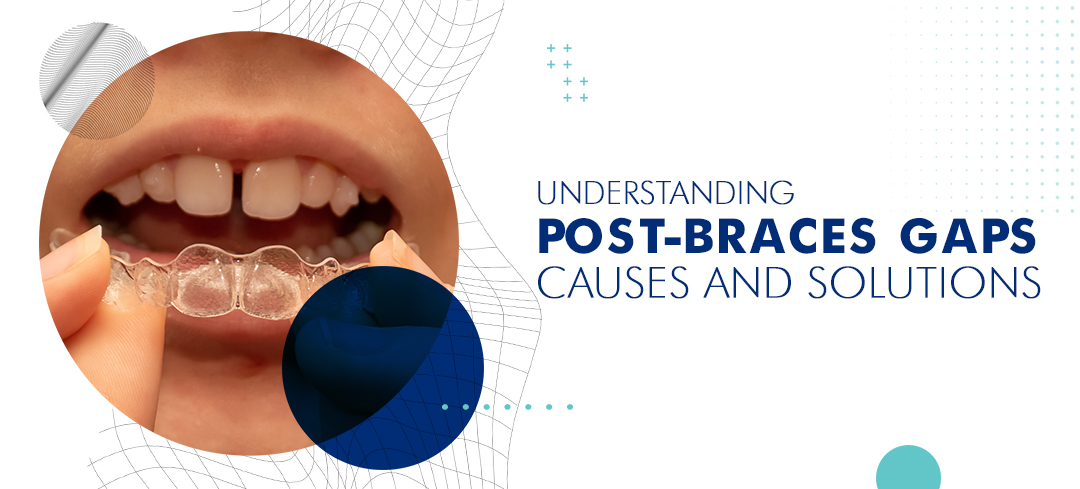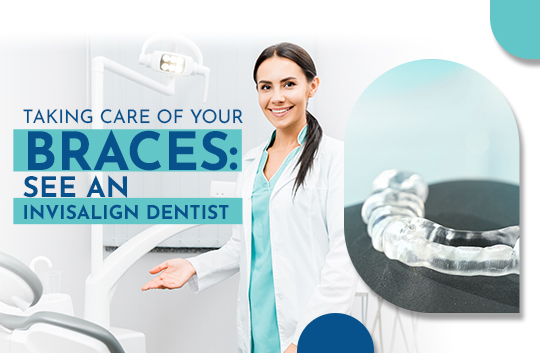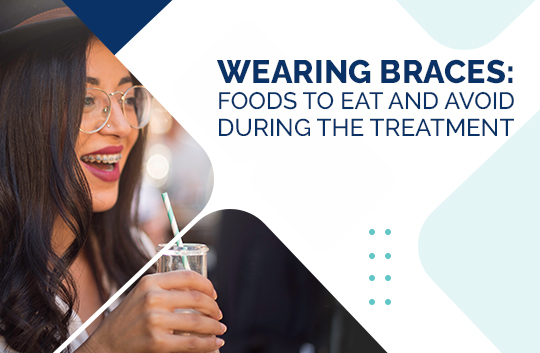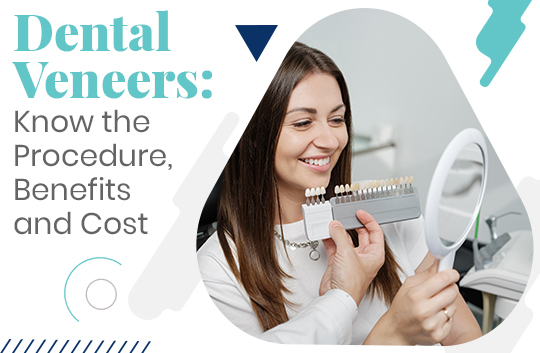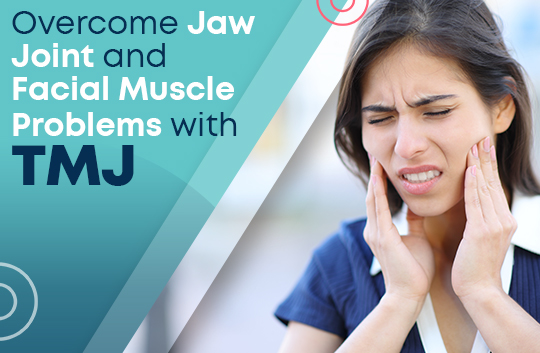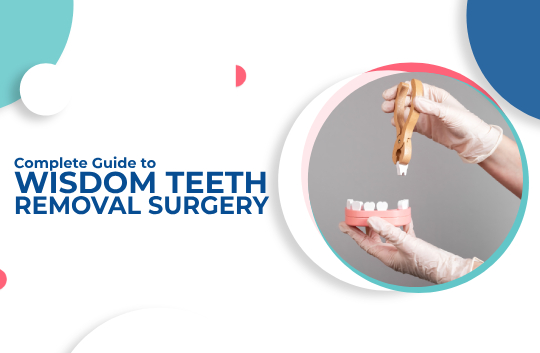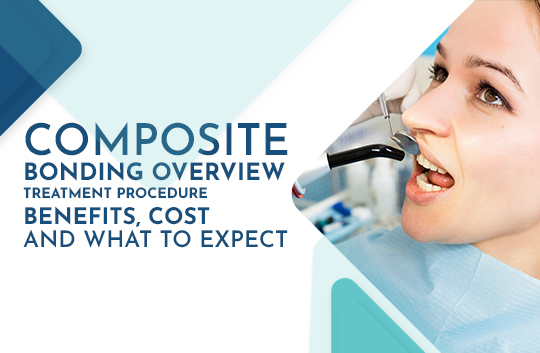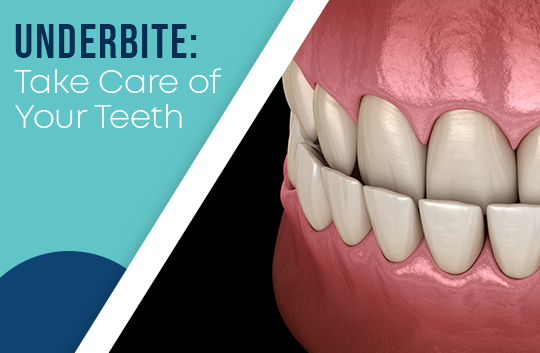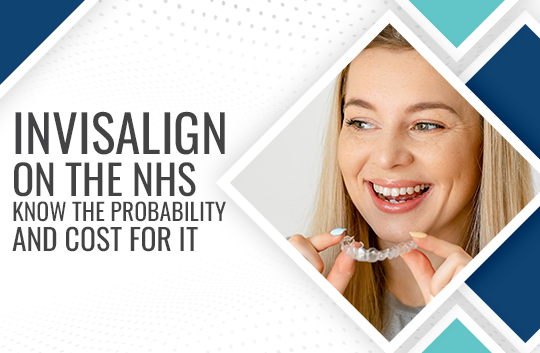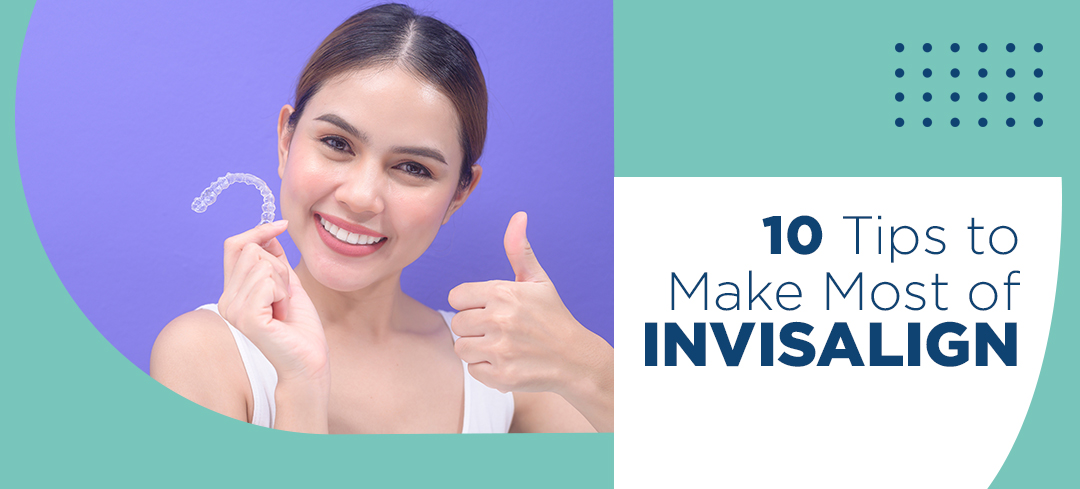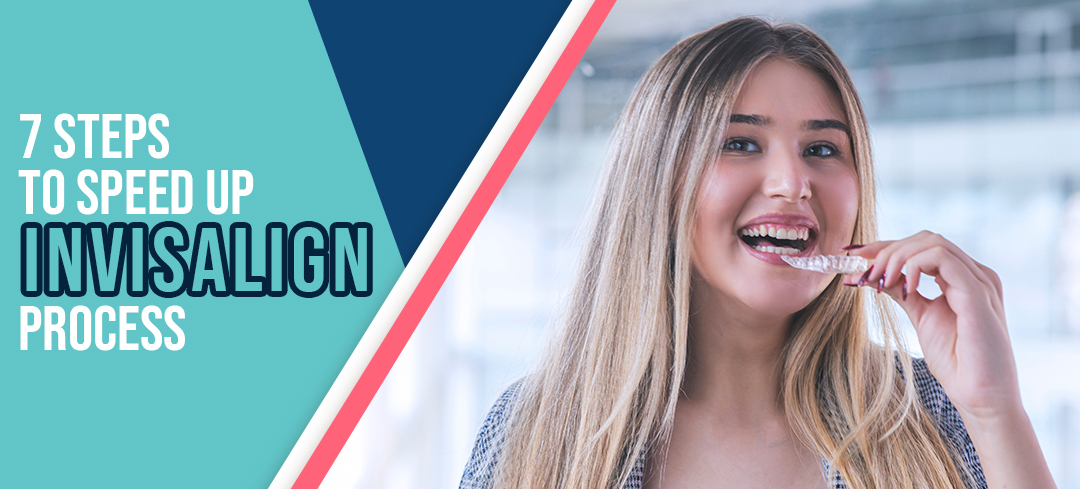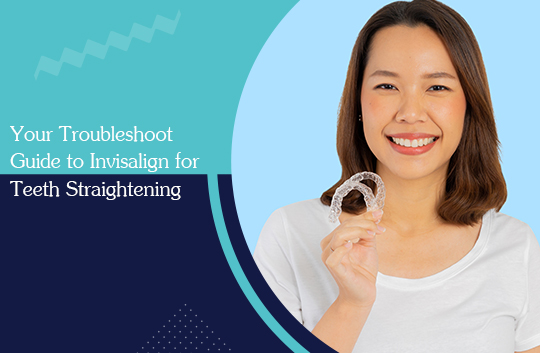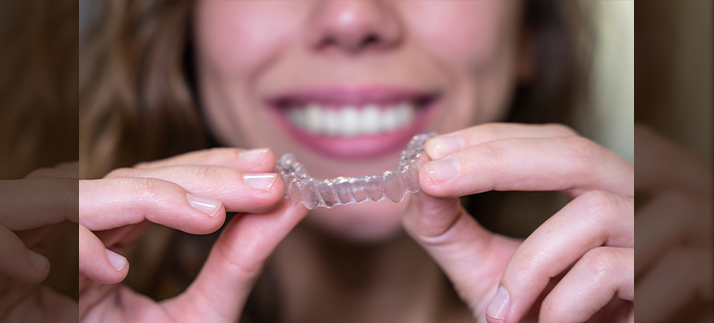

Getting Invisalign with Gum Disease: What to Know About it
Invisalign is a suitable alternative to the traditional braces which can help to shift teeth into their desired place. There are no wires or metal braces when you choose Invisalign treatment that can cause irritation to the gums. Having misaligned teeth may make your gum disease worse. Luckily, you can still perform Invisalign when you have a gum disease but it must be under control. A good dentist can ensure the treatment is customised for the health of your teeth and gums. Read on to know how Invisalign can help to straighten teeth and deal with the problem of gum disease.
What should you know about gum disease?
Gum disease also called periodontitis, is a common problem faced by many people. Some causes of gum disease are the following:
- Buildup of plaque – Gum disease occurs due to plaque which is a sticky film of bacteria forming in the teeth and gums. This happens with the combination of bacteria, food and saliva. When plaque is not removed, it might turn into tartar which can be removed by a dentist only. The presence of bacteria in the plaque can release toxins causing gum inflammation or gingivitis. This inflammation might be the reason for periodontitis when you do not treat it on time. It can cause damage to the ligaments and bones supporting the teeth and leading to tooth loss.
- Smoking and chewing tobacco – Smoking can be the reason for gum disease when the immune system gets weakened and decrease flow of blood to the gums. This makes it difficult for your body to fight off bacterial infections and repair the damaged tissues.
- Medicines –Taking certain medications may be the reason for gum disease by making the gums red, swollen and highly prone to bleeding. Medicines can decrease saliva flow for protecting the teeth from further decay. Some medications can lead to gum tissue overgrowth, making it troublesome to clean your teeth and gums properly.
- Nutritional deficiencies – Nutritional deficiencies may weaken your immune system and make it difficult to fight off bacterial infections in the mouth. If you do not have sufficient vitamin C or D, it can lead to gum inflammation and affect the health of your teeth and gums. Having a diet which has higher amount of sugar and lower amount of nutrients may enhance the risk of gum disease with the promotion of bacterial growth. Eating a balanced diet can give your body the essential nutrients it requires to maintain good oral and overall health.
- Crooked teeth –Your crooked teeth can increase the risk of gum disease by creating spaces which are hard to clean with daily brushing and flossing. This might be the reason for the formation of bacteria and plaque accumulating in hard-to-reach areas. The misaligned teeth can lead to unwanted pressure on the jaw bones and gums for supporting the teeth. It can be the reason for the formation of gum disease and inflammation.
Can I get Invisalign with gum disease?
Gum disease is an infection of the soft tissue surrounding and supporting the teeth. Luckily, Invisalign is a suitable choice for the ones suffering from gum disease. The dentist will evaluate the condition of the jawbone and severity of your gum disease. Based on that, he will suggest undergoing Invisalign treatment for your teeth straightening. In most cases the dentist will suggest to treat the gum disease to get it under control so that you can undergo the orthodontic procedure.
What happens when you do not treat gum disease
Managing periodontitis is necessary for your health and overall well-being. Periodontitis or gum disease is a serious oral infection causing extreme damage to the soft tissue and cause tooth loss when you do not treat it on time. It can be the reason for some kind of discomfort when wearing aligners due to swollen gums.
How can Invisalign help to prevent gum disease?
The benefits of Invisalign include managing gum disease and lessen the risk of gum disease by decreasing gaps in between the teeth. This can lessen the formation of plaque, which is among the primary causes. Besides, cleaning and maintaining Invisalign device is necessary for proper brushing and flossing.
Benefits of Invisalign
Invisalign is an orthodontic method for your teeth straightening. Some benefits are the following:
- Improved appearance: These aligners are clear and virtually invisible, making them an attractive option when compared to the traditional metal braces.
- Enhanced comfort: The braces are made of smooth plastic which make them comfortable to wear than traditional braces.
- Easy to remove: Invisalign braces are removable which means you can take the out at the time of brushing, flossing, eating and drinking.
- Improved dental hygiene: As the aligners are easy to remove, cleaning your teeth is easy than using the traditional braces.
- Predictable results: Invisalign uses the latest 3D imaging technology for preparing a customised treatment plan, resulting in more accurate and predictable results.
- Fewer dental visits: Invisalign requires fewer dental visits than the traditional braces. It is a convenient choice for the individuals who follow busy schedule.
- No restrictions on food: You can eat whatever you want with Invisalign braces.
Aftercare of Invisalign with Gum Disease
Proper maintenance is necessary when you are undergoing Invisalign treatment with gum disease. Aftercare follow Invisalign method might consist of the following:
- Routine dental visits: People who have gum disease may require additional visits to the dentist. These are necessary to ensure your gum condition is being monitored and they stay healthy.
- Regular brushing, inter dental brushing and flossing: As plaque can accumulate quickly between teeth with Invisalign than with traditional braces, daily brushing and flossing are essential to maintain oral health.
- Eat healthy and avoid tobacco: Eating lots of vegetables and fruits, lessening the intake of sugar and abstaining from smoking can maintain healthy gums with Invisalign.
Thus, maintaining good gum health is necessary when you want to perform Invisalign with gum disease. This is because gum disease may affect your suitability and everyone’s case is different, a dentist can suggest whether it is the right option for you particularly with extreme gum disease. Regular dental check-ups can help to detect, manage and prevent gum disease before it is too late. Maintaining a healthy mouth and straight teeth is important for your overall well-being. Make sure you prioritise your gum health and get in touch with a provider for an Invisalign consultation today.
 70 Great Russell St, Holborn, London WC1B 3BN, UK
70 Great Russell St, Holborn, London WC1B 3BN, UK



